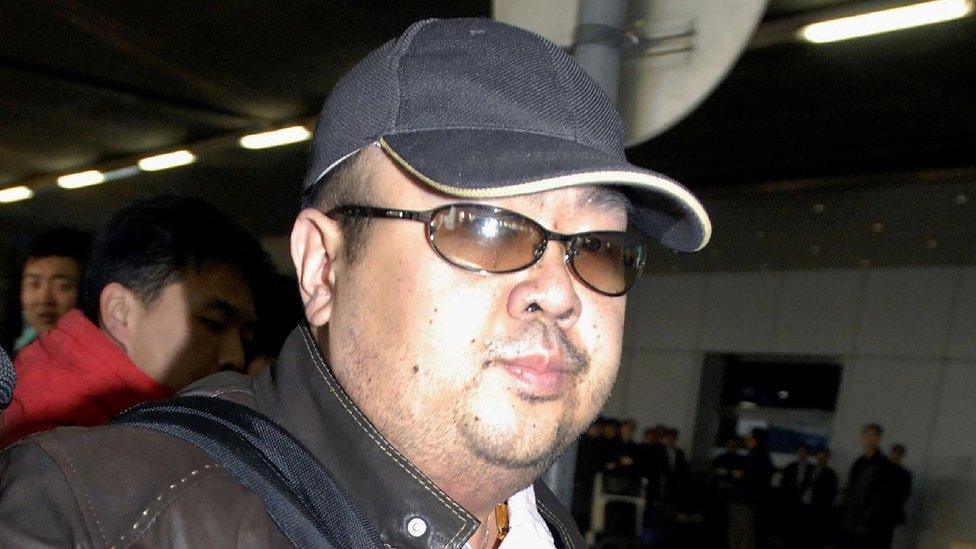Kim Jong-nam murder: Suspect Siti Aisyah 'shocked' at being released
- Published
While in prison, Siti Aisyah wondered: "Is this the end of my life?"
The Indonesian woman freed after being accused of killing the half-brother of North Korea's leader says she was "shocked" when she learned of her release.
Siti Aisyah had been accused of smearing VX nerve agent on Kim Jong-nam's face in Kuala Lumpur airport.
In an interview with the BBC, she said at one point she had thought: "Is this the end of my life?"
She repeated that she was not involved in Mr Kim's murder in 2017.
Ms Aisyah refused to go into details when asked about how she was recruited, and about the men who recruited her.
She and her co-accused, Vietnamese Doan Thi Huong - who also denies murder - say they thought they were part of a TV prank.
"I never [thought] that I was being entangled to such an extent," Ms Aisyah told BBC Indonesian a day after her release.
"[I was] shocked at first, I couldn't believe it," she said of her release. "But I'm happy."
Ms Aisyah, who had been working in Malaysia since 2015, said she had seen Ms Huong in prison sometimes, but that they had never discussed the killing.
"Sometimes once a week, we [could] get out [of] our cell and walk inside the prison compound. I met her. I asked her: 'How are you doing?' Just to say hi."
Her release does not amount to an acquittal. She could have faced the death penalty if convicted.
Ms Aisyah said she wanted to get some rest and has no plans to return to Malaysia. She added that she hoped Ms Huong could also be freed as soon as possible.
Kim Jong-nam: Indonesian woman freed in murder case
Malaysian Prime Minister Mahathir Mohamad said the decision to free Ms Aisyah had been in line with "the rule of law".
"There's a law that allows charges to be withdrawn. That was what happened. I don't know in detail the reasons," he told journalists.
He said he was unaware of any negotiations between Indonesia and Malaysia on the issue, according to AFP news agency.
Where does that leave the trial?
After several months of delay, the defence phase of the trial was set to begin on Monday 11 March, with testimony from Ms Huong.
However, the prosecutor in the case requested the murder charge for Siti Aisyah be dropped, without giving a reason.
In a letter to the Indonesian law minister, Malaysia's attorney general explained that the decision took into account considerations Jakarta had raised about the case, as well as the good relations between the two countries.
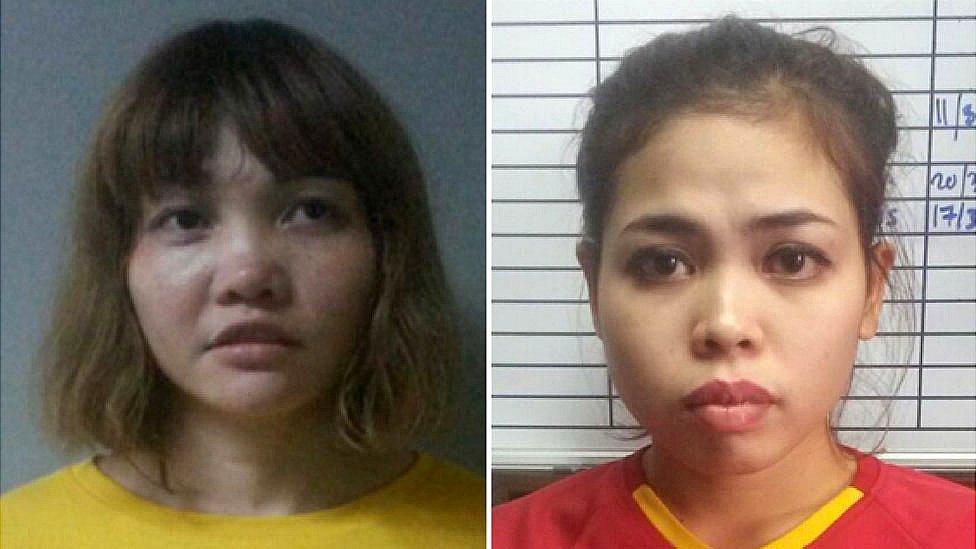
Doan Thi Huong (left) and Siti Aisyah say they were tricked by North Korean agents into carrying out the killing
Ms Huong's case has now been adjourned at the request of her lawyers.
How did the murder happen?
The brazen killing at an international airport left observers stunned and gripped international headlines.
Kim Jong-nam, the estranged half-brother of Kim Jong-un, had been waiting to board a flight from Kuala Lumpur to Macau on 13 February 2017 when two women approached him in the departure area.
CCTV footage showed one of them placing her hands over his face, then both women leaving the scene.
Mr Kim died on the way to hospital from what was later found to be exposure to the nerve agent VX, one of the most toxic of all known chemical agents.
North Korea has fiercely denied any involvement in the killing, but four men - believed to be North Koreans who fled Malaysia on the day of the murder - have also been charged in the case.
They remain at large despite an Interpol "red notice", equivalent to an international arrest warrant.
What is the women's defence?
The two women have said they were innocent victims of an elaborate North Korean plot.
According to their lawyers, in the days before Mr Kim's death the women had been paid to take part in pranks where they wiped liquid on people at airports, hotels and shopping malls.
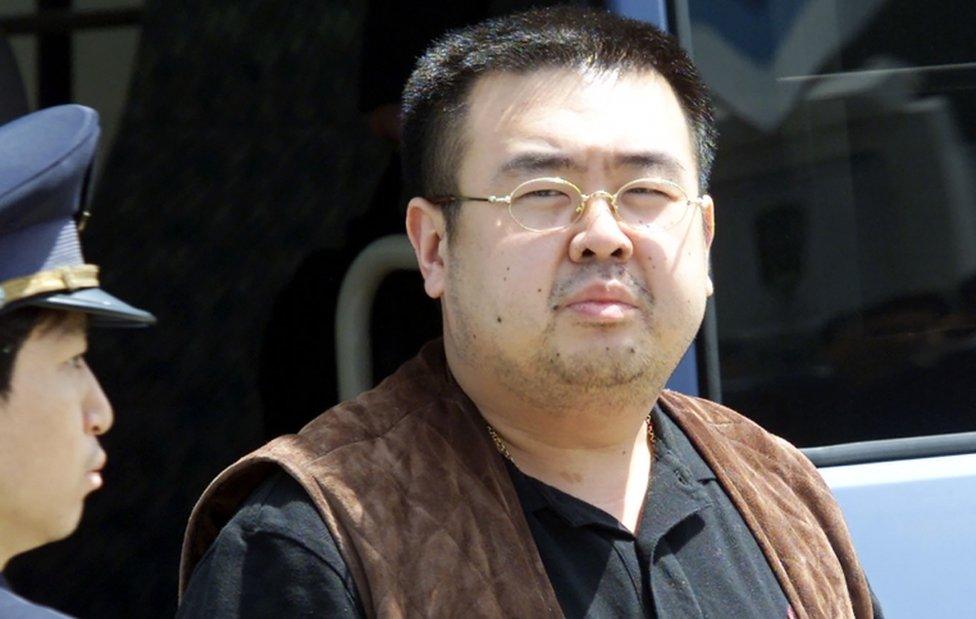
Kim Jong-nam, pictured in 2001, the late half-brother of North Korean leader Kim Jong-un
They thought they were taking part in another prank at the airport. Their lawyers had expressed confidence that the court would see they had no motive to kill Mr Kim.
Who was Kim Jong-nam?
The older half-brother of Kim Jong-un was once seen as a future leader of the isolated country. But when his father Kim Jong-il died, he was bypassed in favour of the younger Kim.
He was largely estranged from the family, and spent most of his time overseas in Macau, mainland China and Singapore.
He had spoken out in the past against his family's dynastic control of North Korea, and in a 2012 book was quoted as saying he believed his half-brother lacked leadership qualities.
- Published11 March 2019
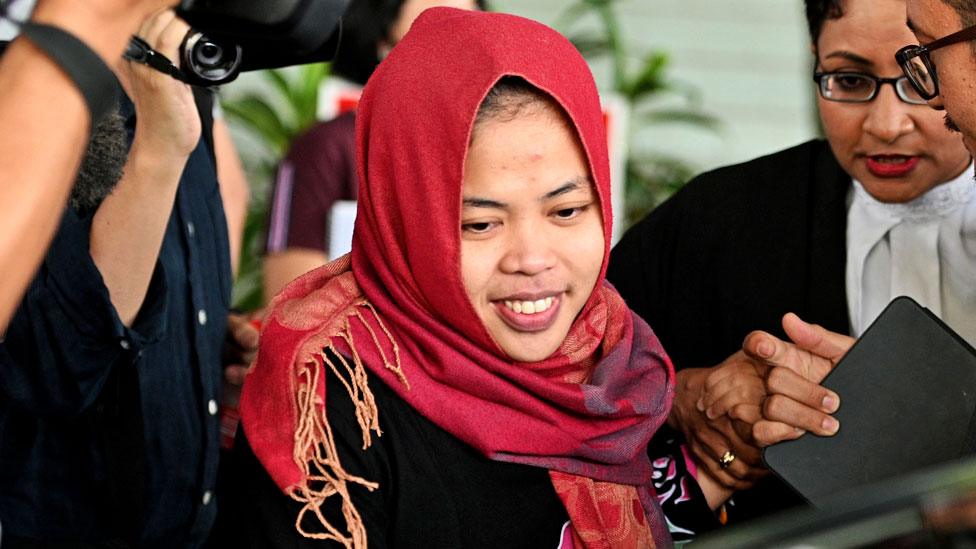
- Published16 August 2018
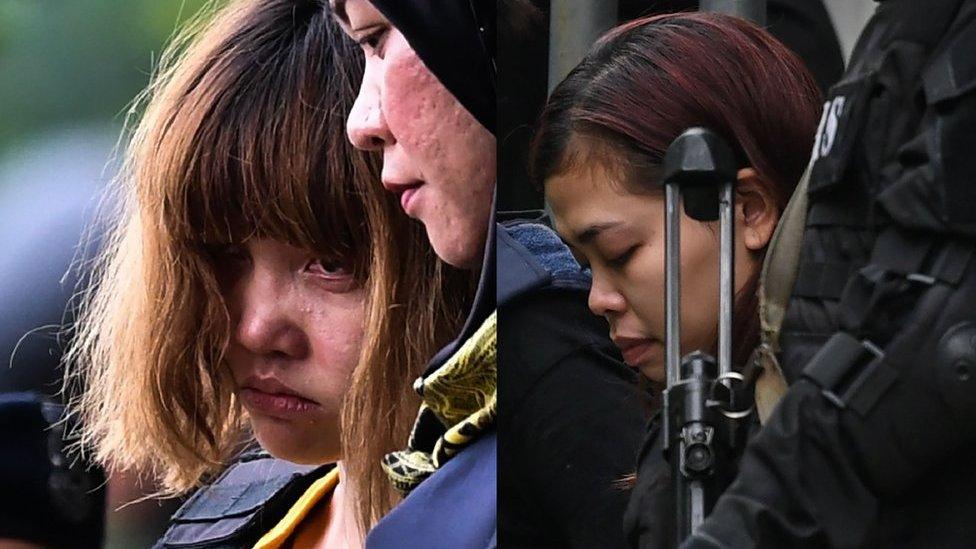
- Published25 February 2017
